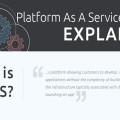What’s the difference between Cloud LMS and Hosted LMS?
When it comes to choosing an LMS, the selection is based on a number of factors. While the features may vary from one solution provider to another, but the key difference lies in the installation type – Cloud LMS or Hosted LMS. In fact, this (installation type) should be an important criteria that should be taken into account while selecting an LMS. To understand the key differences between self-hosted and cloud LMS, you need to review both the options thoroughly.
Knowing the difference between the two will surely help you determine which one is most suitable for your needs.
Definitions
A Learning Management System (LMS) is software for educational courses, training programs, tracking, documentation and detailed reporting.
Cloud LMS is a software which is accessed through the Internet, available on demand, can be accessed anytime from anywhere. All the learning takes place online and all the data is stored in the cloud.
Hosted LMS is also a learning management system software which is accessed through the organization’s own in-house servers. Hosted LMS requires installation and on-going maintenance on your company’s IT servers by your own IT team member.
SaaS LMS is Software as a Service. It is a software which is hosted on the provider’s servers instead of servers in-house. When a learning management system provider tells you they have a SaaS LMS, they are letting you know they provide a cloud LMS.
Benefits of Hosted LMS
If you have a dedicated IT staff or the resources to create one, you can control your own server and have your IT team take care of the initial installation of your LMS. Your IT team will also be able to manage updates, provide technical support and maintain the hardware necessary for a hosted LMS
This type of LMS is hosted behind a firewall which your IT team will manage along with support services from the hosted LMS vendor.
Some of the features and benefits of having a self-hosted LMS include:
1) Controlled cost because it is a one time software purchase
2) Custom controlled security and you can set the level of security you want
3) Further customization is at your fingertips with an in-house IT management team
4) You can establish a specific protocol for how the LMS is maintained by your in-house IT maintenance team.
5) In-house IT support
6) Build and use your own storage space
7) Customizable
8) Installation and updates by your IT employee
Benefits of Cloud LMS
As the use of elearning has become common in the training sphere, finding a cost-effective SaaS LMS is a decision that needs in-depth research. The challenge is greater simply because there are so many options available.
Cloud-based learning management systems offers ease of use and can be accessed by logging in with your service provider. With a cloud-based LMS, you won’t be needed to install or download any software. You can simply upload course content and/or create new content and are able to communicate with learners directly all via cloud. All information is stored on the cloud which is accessed by approved users remotely. Unlike hosted LMS’, you will not have to hire more resources because your service provider will takes care of everything.
Some of the key features and benefits of cloud LMS include:
1) Lower start up costs (no software to purchase, no programs to install)
2) Enhanced data security
3) Improved accessibility (learn on the go, anywhere, anytime)
4) Quick delivery
5) Effective budget management
6) Easier to maintain, completely hassle-free management
7) More storage space
8) Customizable
9) Scalable

Why the Cloud-based LMS is clearly best
Cost-effective SaaS LMS offers flexibility and customized content to administration and necessary training to employees. With low start-up costs, easy and quick delivery, enhanced security and automatic upgrades, cost-effective SaaS LMS is an ideal choice for educational institutions, businesses and organizations of different sizes and a variety of budgets.
Customer support, training, updates and system configuration are typically included so the expenses of operating a cloud-based LMS is cheaper. Cost-effective SaaS LMS typically offers a couple of different subscription levels including a pay as you go option which the corporate usually prefer to go for. If you determine the service provider is a long-term partner you can usually achieve an even better monthly rate when you pay for an annual subscription. You may also be able to increase the richness of the experience through different plan opportunities from one service provider to the next as your needs grow and change.
A cost-effective SaaS LMS means you invest your time creating content, enrolling learners or selling your courses online (which means it allows you to focus on your end objective) instead of installing, implementing, managing technical issues and maintaining a hosted LMS.
There’s no installation to do, no installation fees, no backups to mess with as the cloud is secure and it is compatible with many platforms and devices.Time, dedication and a device that is connected to the Internet is all that is required in order to access the SaaS LMS.
Conclusion
With so many features and benefits of cloud-based elearning tool, it definitely is a better choice. The upfront investment is less with cloud LMS and you can pay monthly while creating a culture of lifelong learning that positively impacts the lives of your learners forever.
Jason Grills
Latest posts by Jason Grills (see all)
- What’s the difference between Cloud LMS and Hosted LMS? - June 17, 2017
- Improve Group Collaboration and Productivity with a Knowledge Base - April 9, 2017



